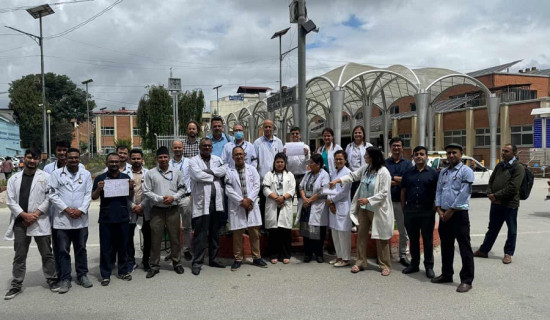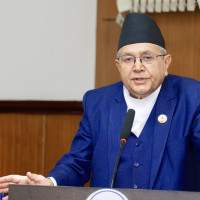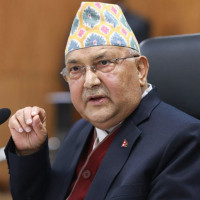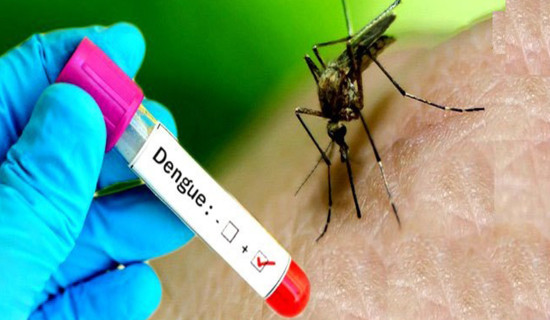- Sunday, 6 July 2025
Countries blast draft of vague deal on climate cash for developing countries
Baku, Azerbaijan, Nov. 22: Countries of the world took turns rejecting a new but vague draft text released early Thursday which attempts to form the spine of any deal reached at United Nations climate talks on money for developing countries to transition to clean energy and adapt to climate change.
The draft left out a crucial sticking point: how much wealthy nations will pay poor countries. A key option for the lowest amount donors are willing to pay was just a placeholder “X.” Part of that is because rich nations have yet to make an offer in negotiations.
So the host Azerbaijan presidency with its dawn-released package of proposals did manage to unite a fractured world on climate change, but it was only in their unease and outright distaste for the plan. Negotiators at the talks — known as COP29 — in Baku, are trying to close the gap between the $1.3 trillion the developing world says is needed in climate finance and the few hundred billion that negotiators say richer nations have been prepared to give.
Independent experts say that at least $1 trillion is needed in finance to help transition away from planet-warming fossil fuels and toward clean energy like solar and wind, better adapt to the effects of climate change and pay for losses and damages caused by extreme weather.
Colombia's environment minister Susana Mohamed said without a figure offered by developed nations, “we are negotiating on nothing.”
Panama's Juan Carlos Monterrey Gomez called the “lack of commitment transparency feels like a slap in the face to the most vulnerable."
"It is just utter disrespect to those countries that are bearing the brunt of this crisis,” he said. “Developed countries must stop playing games with our life and put a serious quantified financial proposal on the table.”
Esa Ainuu, from the small Pacific island of Niue also blasted the lack of a number in the draft deal.
“For us in the Pacific, this is critical for us,” Ainuu said. “We can’t escape to the desert. We can’t escape somewhere else. This is reality for us. If finance is not bringing any positive, (then) why’re we coming to COP?”
Mohamed Adow, director of the think tank Power Shift Africa, also expressed disappointment at the lack of a figure. “We need a cheque but all we have right now is a blank piece of paper,” he said.
Iskander Erzini Vernoit, director of Moroccan climate think-tank Imal Initiative for Climate and Development, said he was “at a loss for words at how disappointed we are at this stage to have come this far without serious numbers on the table and serious engagement from the developed countries.”
Lead negotiator Yalchin Rafiyev emphasized how balanced the plan was, but all sides kept saying it was anything but balanced and pointed time was running out.
“We would like to correct the balance. It is completely tilted,” Pakistan delegate Romina Khurshid Alam said.
The European Union’s climate envoy Wopke Hoekstra called the draft “imbalanced, unworkable, and not acceptable.”
In a statement, the COP29 Presidency stressed that the drafts “are not final.”
“The COP29 Presidency’s door is always open, and we welcome any bridging proposals that the parties wish to present,” the Presidency said in a statement. It added that possible numbers for a finance goal will be released in the next iteration of the draft. COP29 President Mukhtar Babayev convened the Qurultay — a traditional Azerbaijani meeting — where negotiators spoke to hear all sides and hammer out a compromise. He said that “after hearing all views, we will outline a way forward regarding future iterations.”
Other areas that are being negotiated include commitments to slash planet-warming fossil fuels and how to adapt to climate change. But they’ve seen little movement.
European nations and the United States criticized the package of proposals for not being strong enough in reiterating last year’s call for a transition away from fossil fuels.
“The current text offers no progress” on efforts to cut the world’s emissions of heat-trapping gases, said Germany delegation chief Jennifer Morgan. “This cannot and must not be our response to the suffering of millions of people around the world. We must do better.”
U.S. climate envoy John Podesta said he was surprised that “there is nothing that carries forward the ... outcomes that we agreed on last year in Dubai.” The United States, the world’s biggest historic emitter of greenhouse gases, has played little role in the talks as it braces for another presidency under Donald Trump.
Also on Thursday, the EU, Mexico, Norway and several other countries announced they would release plans to rapidly cut emissions over the next decade to meet the landmark Paris agreement’s goal of restraining global warming to 1.5 degrees Celsius (2.7 Fahrenheit) above pre-industrial times, although they did not detail how those cuts would happen.(AP)















